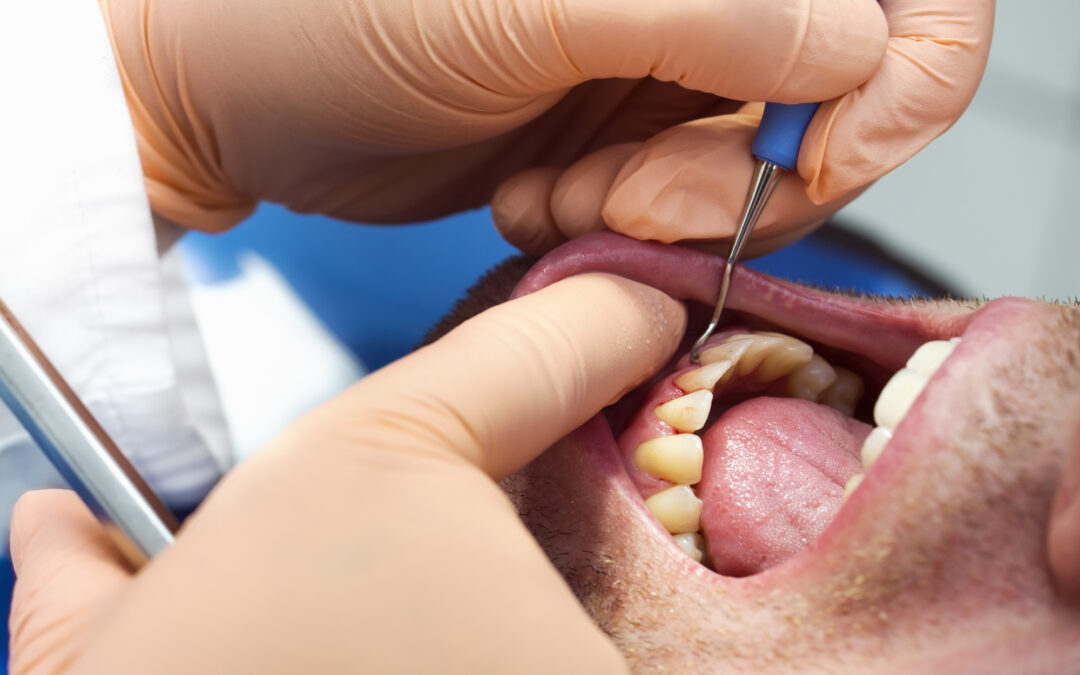Almost 50% of U.S. adults over 30 are dealing with periodontal disease. Unfortunately, many people fail to seek the care they need from a periodontist.
Do you know what a periodontist is? A periodontist is a special dentist who cares for your gums and the bone around your teeth.
They help ensure your mouth is healthy and your smile is bright. If you have dental problems, scheduling an appointment is recommended.
But how do you know when it’s time to visit a periodontist? Here are 9 signs that might mean you need to see one.
1. Your Gums Are Red and Swollen
Optimal gum health is characterized by firm, pink tissue tightly surrounding teeth. However, when gums become red and swollen, this may indicate an underlying issue that requires attention.
Inadequate oral hygiene practices, such as insufficient brushing and flossing, can often lead to these symptoms. Swollen gums can cause discomfort and make it difficult to consume food.
If you observe these changes in your gum health, scheduling an appointment with a periodontist is highly recommended to assess and address the issue.
2. Your Gums Bleed When You Brush or Floss
Do you see blood when you brush or floss your teeth? This is abnormal and may be a sign of a dental health issue.
A periodontist can discover why your gums are bleeding and help you fix the problem. They can also recommend oral care tips to help ensure this does not happen again.
3. Your Teeth Feel Loose
When you bite or chew, your teeth should be strong and stay in place. If you feel like your teeth are loose, it might mean a problem with your gums or the bone around your teeth.
Several issues can cause your teeth to feel loose, including:
Gum Disease (Periodontitis)
This is a common cause of loose teeth. When plaque and tartar build up on the teeth, they can cause inflammation and damage the gums and supporting bone structure, leading to tooth mobility.
Trauma or Injury
An injury to the teeth, jaw, or mouth can cause teeth to become loose. This can occur due to an accident, a sports injury, or even from biting down on hard objects.
Teeth grinding (Bruxism)
Constant grinding or clenching of the teeth can put excessive pressure on the teeth and supporting structures. Over time, this leads to loosening of the teeth.
Occlusal Trauma
Uneven bite forces due to misaligned teeth, a high dental restoration, or an ill-fitting dental prosthesis can cause stress on the supporting bone and periodontal ligaments. This can also lead to tooth mobility.
Osteoporosis
This is a medical condition that leads to a reduction in bone density. In some cases, osteoporosis can affect the jawbone, causing teeth to loosen.
Pregnancy Hormones
Hormonal changes during pregnancy can temporarily cause the loosening of the teeth. This is because it affects the periodontal ligaments holding the teeth.
If you experience loose teeth, it is essential to consult a dental professional for a proper evaluation and treatment plan.
4. Your Gums Are Pulling Away from Your Teeth
When your gums are healthy, they should fit snugly around your teeth. But sometimes, gums can pull away from your teeth, making them look longer.
This is called gum recession. It can happen for many reasons, like brushing too hard or not caring for your teeth.
If you see your gums pulling away, a periodontist can help you figure out what to do.
5. You Have Bad Breath That Won’t Go Away
Everyone has bad breath sometimes. But if you have bad breath that won’t go away, even after you brush and floss, it might be a sign of a problem in your mouth.
A periodontist can find out if your bad breath is because of your gums and help you eliminate it.
6. You Have Pain When Chewing
Eating should be enjoyable, not painful. If you have pain when you chew, it could be a sign of something wrong with your gums or teeth.
A periodontist can look at your mouth and find out why eating hurts. They can help you fix the problem so you can enjoy your food again.
7. Your Teeth Look Longer Than They Used To
As you grow, your teeth should stay the same size. If your teeth look longer than they used to, it might be because your gums are pulling away from them.
This can happen if your gums are not healthy. A periodontist can check your gums and help you figure out what to do.
8. You Have Sores in Your Mouth That Won’t Heal
Sores in your mouth can be annoying and painful. Most of the time, they heal on their own.
But if you have sores that won’t heal, it could be a sign of a problem with your gums. A periodontist can look at your mouth and discover why the sores are not healing.
9. Your Family Has a History of Gum Disease
Did you know that gum disease can run in families? If your parents or grandparents had gum disease, you might also have a higher chance of getting it.
A periodontist can check your mouth for signs of gum disease and help you take steps to prevent it. It’s a good idea to visit a periodontist if your family has a history of gum problems.
Is It Time to See a Periodontist?
Taking care of your teeth and gums is important for a healthy mouth and a beautiful smile. If you notice any of these 9 signs, it might be time to visit a periodontist.
They can help you fix the problem and keep your mouth in great shape. Remember, it’s always better to catch problems early and care for them before they worsen. S
Pay attention to your mouth, and don’t be afraid to ask for help. You can easily contact us to schedule an appointment.

